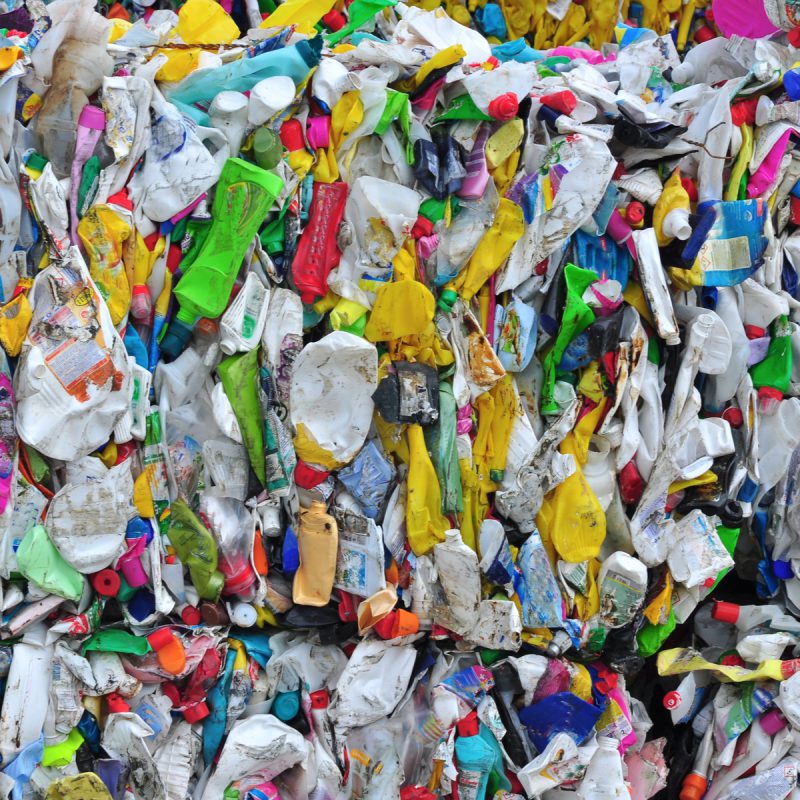As children, most of us were encouraged to recycle. Recycling was the Earth-conscious decision, the standard of living an eco-conscious life. We assumed that the items we tossed in the recycling bin were actually sent to a recycling center, broken down, and used to create something else. That may have been the case in the past, but our disposable lifestyles are now catching up to us.
According to the Environmental Protection Agency, the US recycles about 66 million tons of waste every year, and for the past few decades, a large portion of that has been exported to China. However, China recently implemented a ban on importing recycled foreign waste, and rejects shipments that are “more than .05% impure.”
What does this mean for the US? It essentially eliminates a place to send our recyclables, so the majority of it is now ending up in landfills. Recycling is no longer the answer to our pollution problem. There are strategies we can adopt as individuals, and as a society, to address our dependency on these materials.
Related: Why You Should Know the Difference: Recycled versus Sustainable Paper
The Five R’s
Many of us have heard of the three R’s: reduce, reuse, recycle. There are two additional R’s that will be beneficial: refuse and repair.
Refuse: Bring your own take-away containers, utensils, refillable coffee cups, water bottles, reusable bags, or anything that can replace plastic single use items when you’re on the go. Say no to straws. Look for alternative packaging options, like glass or compostable materials, instead of plastic. Buy food items from the bulk section and bring your own containers to fill. Purchase loose fruits and vegetables rather than packaged produce, or hit up the farmer’s market.
Reduce: It may not be realistic to assume we can avoid all plastic materials, but reducing the amount of single-use and unnecessary materials we buy has a huge impact on the health of the planet. Reduce where you can, when you can.
Reuse: Reusing and repurposing what you already own, borrowing, lending belongings to others, shopping at or donating to thrift stores, and bringing your own reusable items (coffee mugs, water bottles, shopping bags, etc.) eliminates the need to purchase unnecessary items. When we reuse what’s already in circulation around us, we walk a little lighter on the planet.
Repair: If it’s broken, fix it! Avoid tossing items in the trash that can be repaired.
Recycle: If you can’t reuse or repair it, THEN recycle it, though recycling should be used as a last option. If you know it’s an item that can’t be reused or repaired at the time of purchase, try to find the option with the highest possible recyclability.
A Circular Economy
The five R’s can help address an individual’s dependency on plastic and other typically recycled materials, but businesses need to adjust the way they currently exist to tackle the root problem. The majority of businesses follow a linear economy concept, which is a take-make-waste mentality, and the main reason why we’re drowning in substances like plastic. To address the growing waste problem, we need to shift to a circular economy.
The circular economy is a three-principle approach to conducting business and manufacturing goods. First, it views waste and pollution as a flaw that can be eliminated in the design of the production process. Utilizing new eco-technologies and materials, like polystyrene, a fully compostable packaging produce derived from plants, can eliminate the use of harmful plastics in the first place. Second, it advocates for recirculating resources and materials in the production process, reusing and repairing as often as possible. Third, it emphasizes the importance of regenerating our environment’s natural processes by giving vital nutrients back to nature.
Take actions to be more sustainable. One way to do so is by using Double A Paper. Our sustainable paper production process, which begins when farmers plant the raw material, involves no waste and uses all the material of the trees. Our process also helps farmers in Thailand, supplementing their income and providing use of the unused land between their rice paddies, called the “KHAN-NA”.
Transitioning to a world void of materials like plastic is going to be a difficult process. It will take energy, determination, and compassion for the natural world to restore what has already been damaged. Paying attention to our personal habits and encouraging businesses to adopt a circular economy mentality will be imperative for change, but the survival of life on Earth depends on it.

